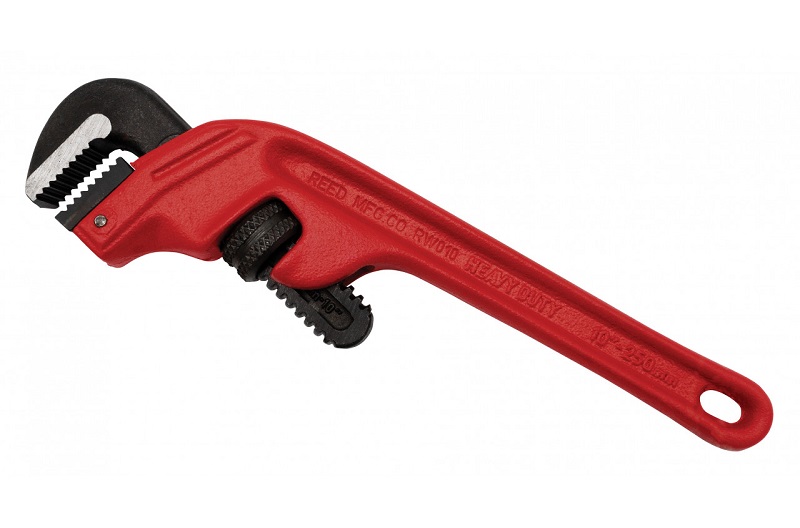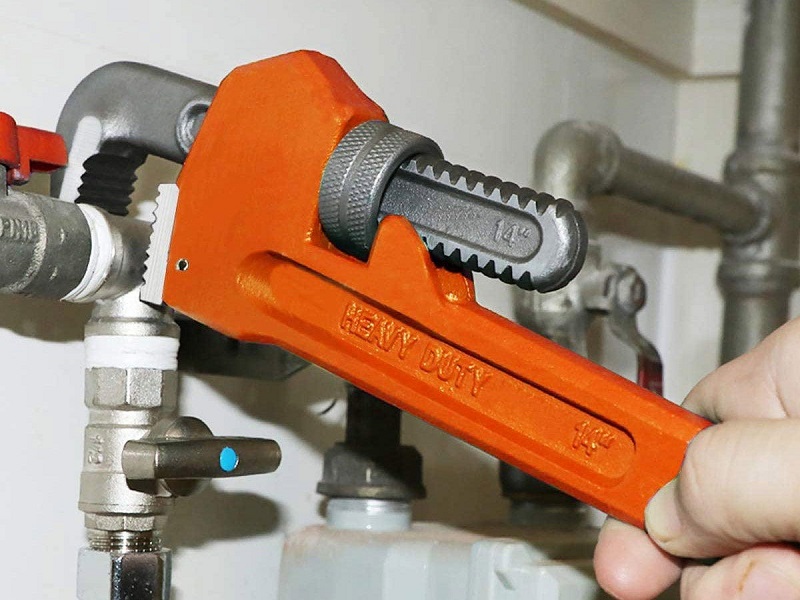When it comes to tools, there’s a fascinating world to explore. Tools not only make our lives easier but also showcase the ingenuity of human craftsmanship. In the realm of plumbing and mechanical work, one tool stands out for its versatility and importance: the pipe wrench. Whether you’re a professional plumber or a DIY enthusiast, understanding the different types of pipe wrenches can greatly impact your efficiency and the quality of your work. In this article, we’ll delve into the three main types of pipe wrenches, each with its unique characteristics, and provide insights on how to choose the right one for your specific needs.
Straight Pipe Wrench: The Classic Choice
Straight pipe wrenches are the foundation of this tool category. They feature a straightforward design with a straight handle and two serrated jaws. These jaws provide a firm grip on pipes, allowing you to tighten, loosen, or turn them easily. The straight pipe wrench comes in various sizes, ranging from a compact 6 inches to an imposing 48 inches or even larger.
Offset Pipe Wrench: Navigating Tight Spaces
In situations where the standard straight pipe wrench can’t reach due to confined spaces, the offset pipe wrench comes to the rescue. With its distinct feature—an offset handle—it allows you to work around obstacles and tight corners. This innovative design ensures that you can access pipes even in the most challenging locations. Just like its straight counterpart, the offset pipe wrench is available in various sizes to accommodate different pipe dimensions.
Compound Leverage Pipe Wrench: Unleashing Extra Power
When dealing with particularly stubborn pipes or fittings, the compound leverage pipe wrench steps up to the plate. What sets this type apart is its extended handle, which translates to increased leverage. With this added power, you can exert more force without putting excessive strain on your muscles. While compound leverage pipe wrenches come in various sizes, they tend to be larger overall, making them ideal for heavy-duty tasks.
Choosing the Perfect Pipe Wrench
Considering Pipe Size
Selecting the appropriate pipe wrench begins with evaluating the size of the pipes you’ll be working on. For smaller pipes, a compact straight pipe wrench might suffice. However, when dealing with larger pipes, an offset or compound leverage wrench could be more suitable due to the enhanced gripping capacity and leverage they offer.
Evaluating Leverage Requirements
Leverage plays a crucial role in the efficiency of your work. If you’re dealing with pipes that require significant force to turn or loosen, a compound leverage pipe wrench can save you both time and effort. On the other hand, if you’re working in confined spaces, an offset pipe wrench’s ability to maneuver around obstacles could be invaluable.
Conclusion
In the realm of plumbing and mechanical work, the right tool can make all the difference. Pipe wrenches, in their various forms, are a testament to human innovation and problem-solving. Whether it’s the straightforward design of the straight pipe wrench, the adaptability of the offset pipe wrench, or the raw power of the compound leverage pipe wrench, each type has its role to play. As you embark on your plumbing endeavors, keep in mind the size of your pipes and the amount of force you’ll need to exert. Armed with this knowledge, you’ll be able to choose the perfect pipe wrench for any task that comes your way.
Frequently Asked Questions
- What are the common materials used for pipe wrench construction?
Pipe wrenches are typically constructed using durable materials such as cast iron, steel, or aluminum. These materials ensure longevity and provide the necessary strength to handle demanding tasks.
- Can I use a pipe wrench on materials other than pipes?
While pipe wrenches are primarily designed for use on pipes, they can also be employed on other cylindrical objects, such as rods or bars. However, it’s important to consider the gripping mechanism and adjust the wrench’s pressure accordingly to prevent damage.
- Are there any maintenance tips for prolonging the lifespan of a pipe wrench?
Absolutely. To extend the lifespan of your pipe wrench, make sure to clean it after each use to prevent rust. Additionally, store it in a dry place and occasionally lubricate the moving parts for smooth operation.
- Is it possible to use a pipe wrench on plastic pipes?
Using a pipe wrench on plastic pipes is not recommended, as serrated jaws can damage the material. Instead, opt for a strap wrench or another specialized tool designed for plastic pipes.
- Can an adjustable wrench be a substitute for a pipe wrench?
While adjustable wrenches can be versatile, they may not provide the same level of grip and torque as dedicated pipe wrenches. For optimal results and to avoid damaging the pipe, it’s best to use the appropriate type of wrench for the task.





